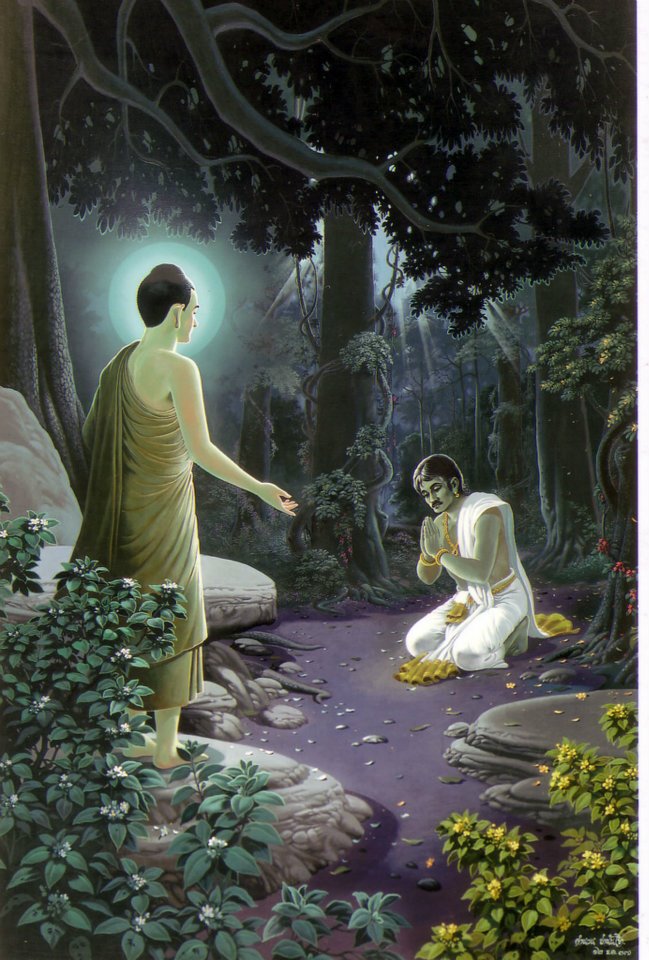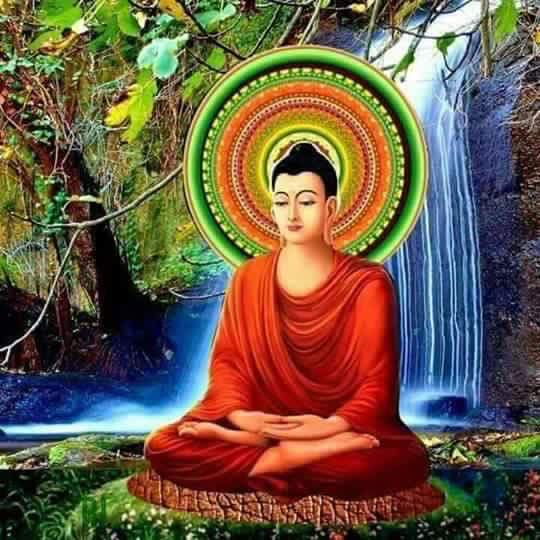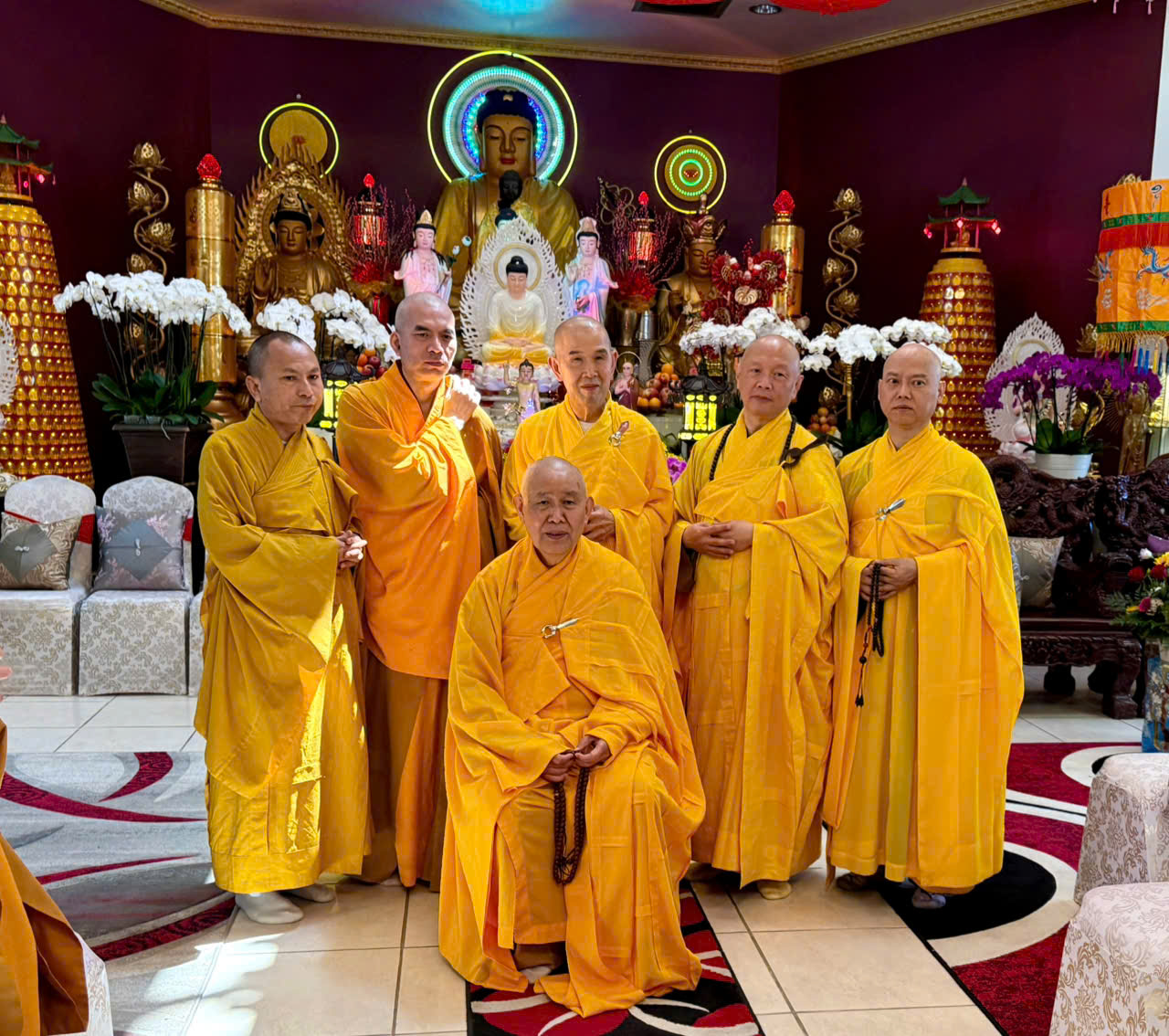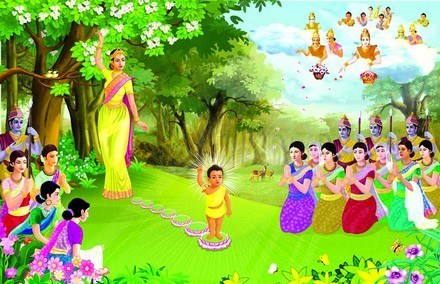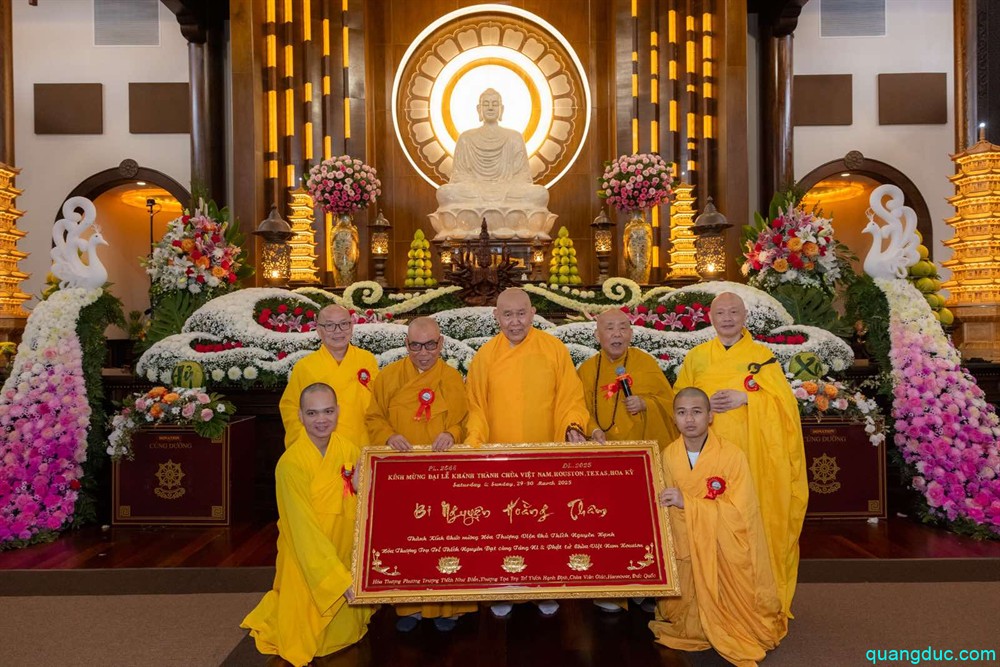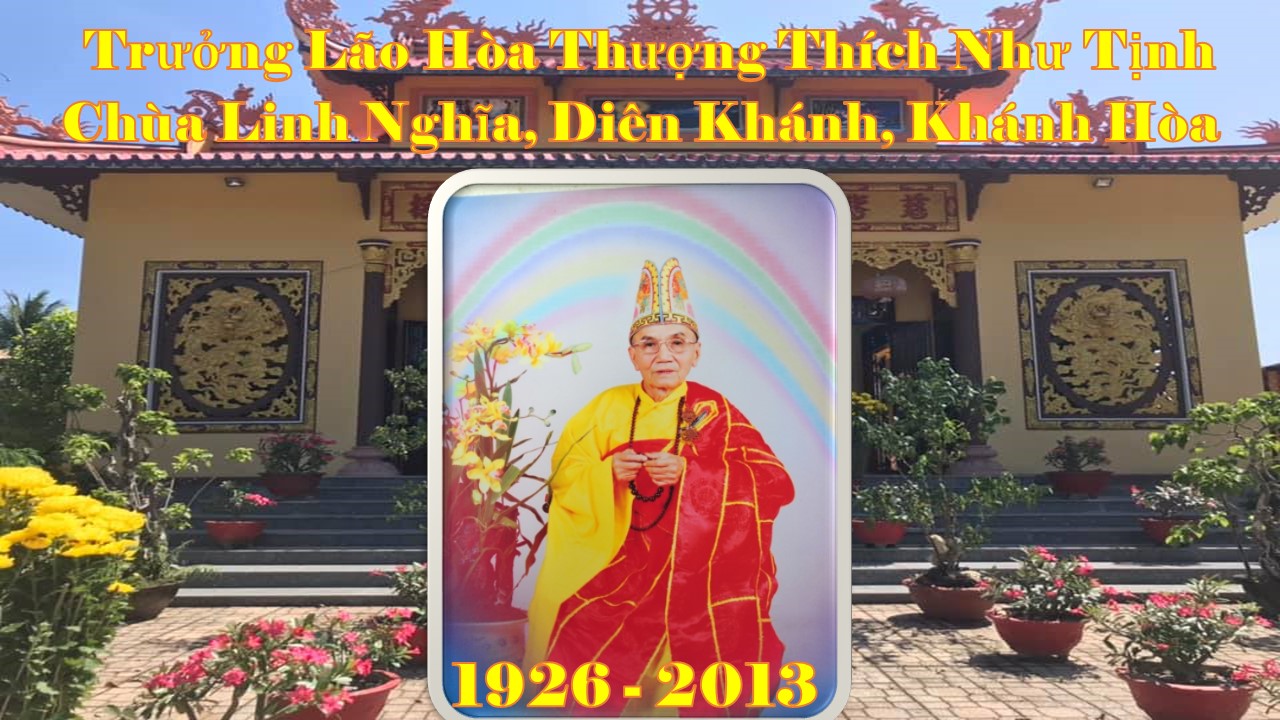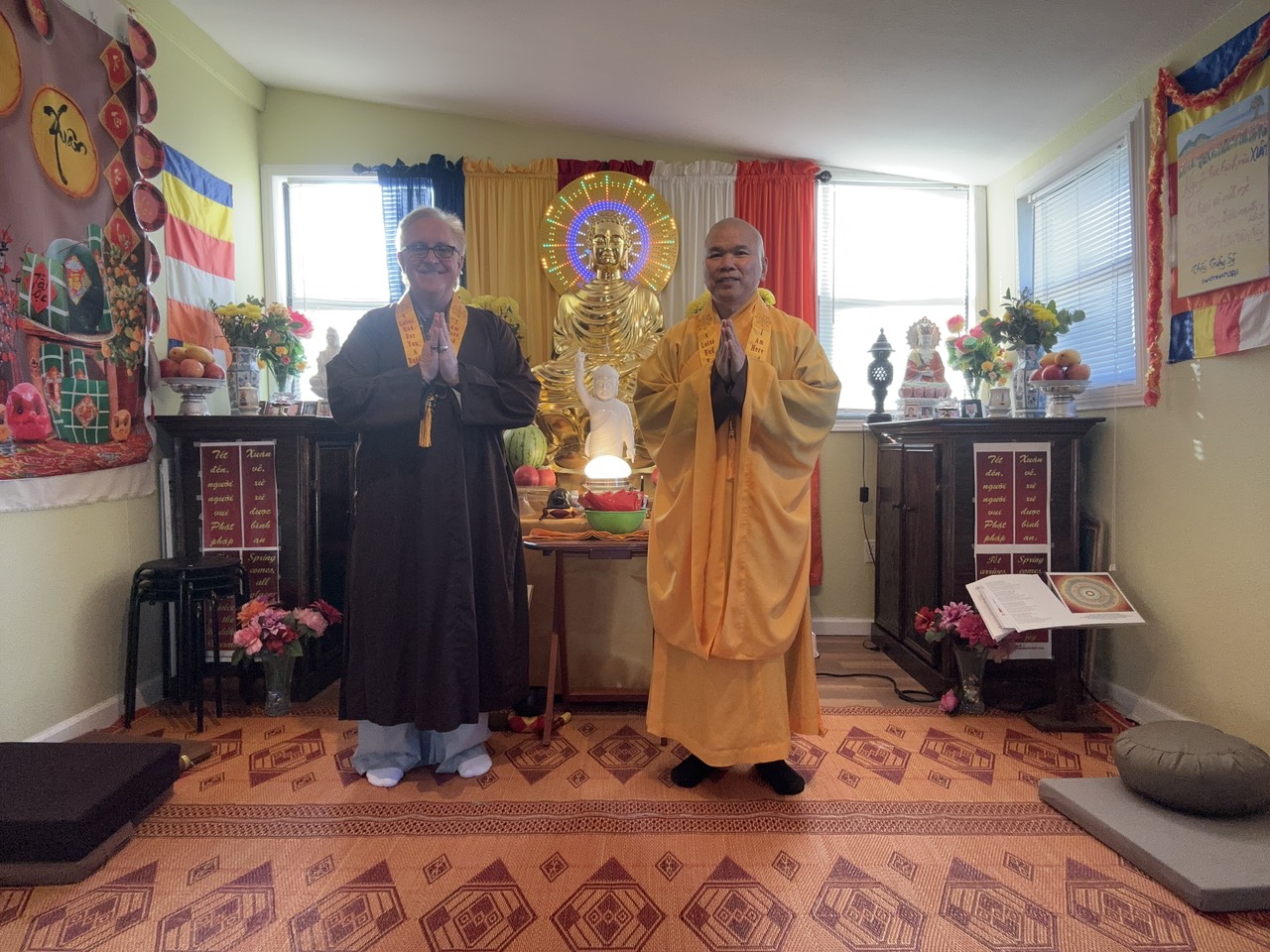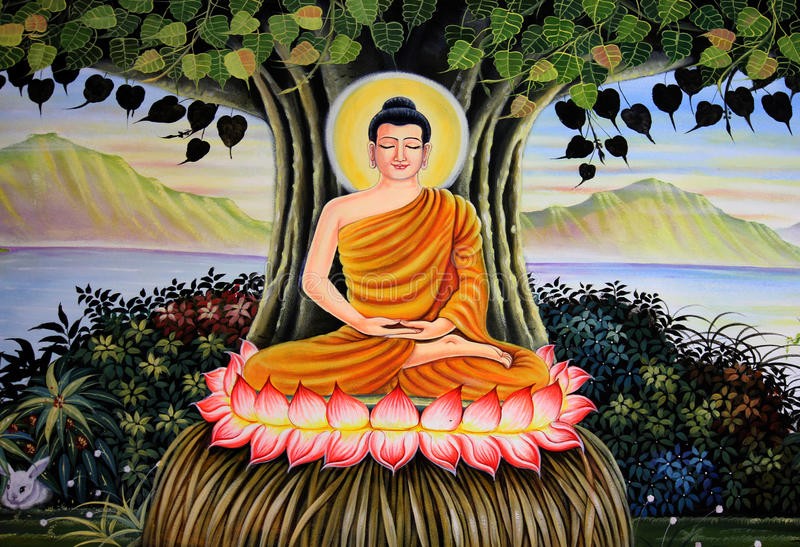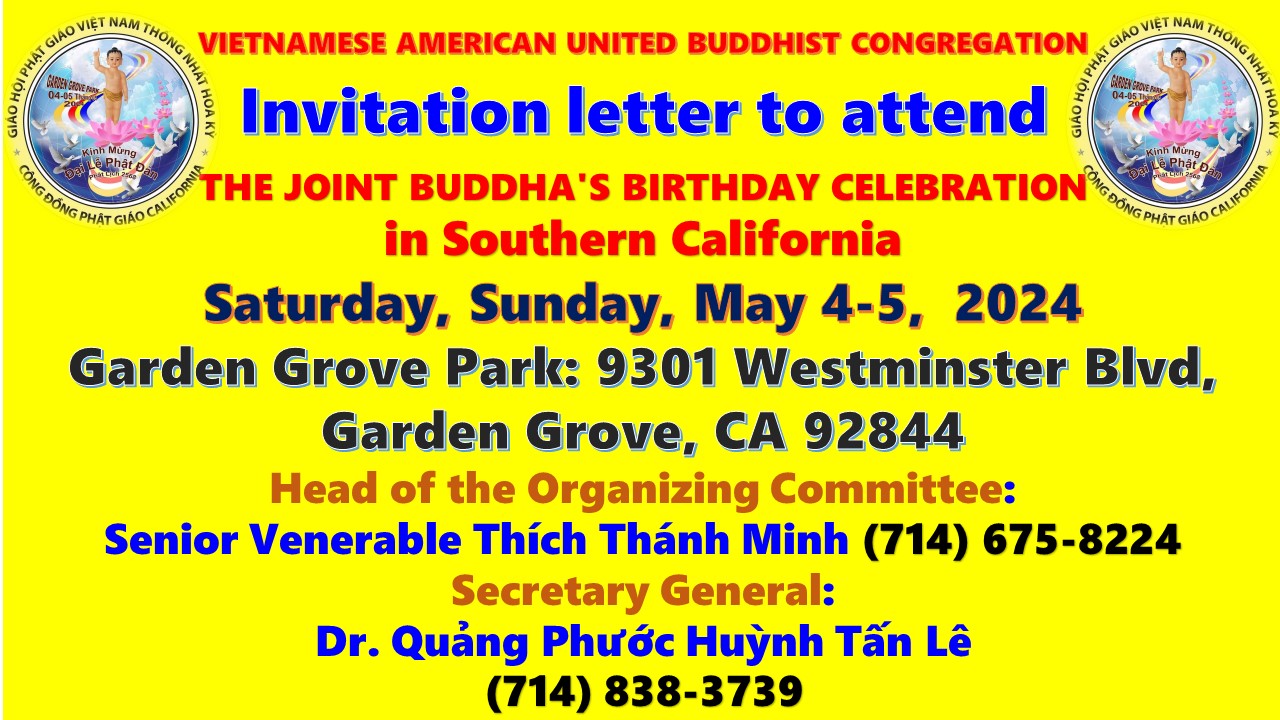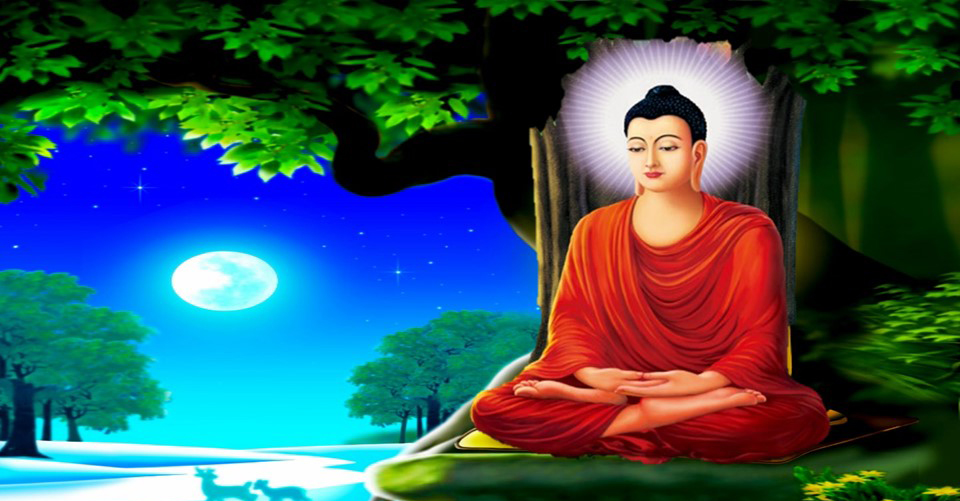
We Wish You a Happy New Year 2021.
World Peace
What humanity needs today is peace in the world for, as we know, the situation in all parts of the world is very chaotic. If we read the newspapers, listen to the radio or watch the news on television, most of the things we read, hear and see contain violence, cruelty, violation of human rights and injustice. Even in countries where Buddhism is the main religion or state religion, such problems are experienced even though the Buddha’s main teachings are development of loving-kindness, compassion, sympathetic joy and equanimity within human society. The Buddha taught that men become noble by virtuous conduct and charitable deeds and become outcasts only by misconduct and miserliness, not by birth. Thus Buddhism offers rights, responsibilities, justice and dignity to human society. It is universally applicable and, offers freedom of thought and allows tolerance and respect towards others. Most of the world’s religions teach the people to develop morality, love and respect for others; however, whatever we witness in this world indicates that we are moving in the wrong direction. The human ethic of morality is being ignored everywhere. It is, indeed, a rarity for a person to be able to live with dignity and be treated justly. Now we have to find out why things are happening like this and how this situation has come about. This is the one point we have to discuss in detail.
If we observe Buddhist countries, morality and an ethical way of life is fast disappearing; the human qualities of righteousness, truth and justice are very hard to find. According to the Buddha, the main cause of these problems is in the human mind. Whatever violence, cruelty and hatred we experience in our life is purely the result of the untamed condition of our mind.
“There is no fire like lust, no grip like hate;
no net like delusion, no river like craving”
and
“If one speaks or acts with an impure mind, then suffering follows” said the Buddha. If we do not tame our mind no one can help us to live a happy and peaceful life. As the Buddha told us, it is a well-directed mind that elevates one, not the endeavours of a mother, father or relative, no matter how sincere they may be. If we study the conduct of Buddhist communities we find that the majority of people practice Buddhist traditions alongside cultural influences involving superstitions or particular rites and rituals. Very few members of the community actually understand and practice what the Buddha really taught and wanted us to be. The Buddha always wants us to follow his teachings honestly not just through blind devotion to him. Therefore, everyone in Theravada Buddhism has to take the three refuges with the five basic precepts on every occasion in their day to day life.
The three refuges are:
Buddham saranam gaccchami,
I go to the Buddha as my refuge;
Dhammam saranam gacchami,
I go to the teaching as my refuge;
Sangham saranam gacchami,
I go to the noble order as my refuge.
We regard the Buddha as a great physician who can diagnose our disease or illness. The Buddha said there are two kinds of diseases, physical and mental. There are very few people who are free from physical disease for one week or one year, or even a hundred years, just as there is no one free from mental disease even for one moment. Disease here means dis-ease. If something happens in our body or mind then we feel a dis-ease, just like the person whose mind is over-whelmed with anger, desire, delusion or jealousy etc. then his or her mind is not at ease, it is diseased.
We are all human beings suffering every moment, every day with these kinds of diseases; therefore, we must take refuge in the Buddha. The Buddha gave us the Dhamma as medicine i.e. Sīla-morality, Samādhi- concentration or control of the mind and Paññā-wisdom or purification of the mind. If we do not use the Dhamma as our way of life we will never become free from the round of suffering; just as if the doctor gives us a medicine and we don’t use it, but keep it in the shrine room as a precious stone and pray over it many times a day. Will our disease be cured? If we don’t apply the three teachings of the Buddha, how can we cure disease? In fact, we cannot be called Buddhist as well. When we take refuge in the Noble Order, it means we are following their path. Anyone, whether man or woman, ordained monk or laity, becomes a Noble One through application of the teachings of morality, concentration and wisdom.
Thus, when we apply the teachings in daily life, only then are we truly taking refuge in the Buddha, Dhamma and Saṅgha can we become Buddhist. Buddhism is not a religion of grace but a religion of practice, “You should work for your own liberation, for the Tathāgatas only show the way” says the Buddha. If one does not apply the teachings in day to day life, even if one says Buddhaṃ saraṇaṃ gacchāmi, Dhammaṃ saraṇaṃ gacchāmi and Saṅghaṃ saraṇaṃ gacchāmi a hundred times in a day one is not a Buddhist.
Sīla-morality, the foundation of training, includes all the virtues of the honest respectable person; it has been identified with virtues in general, and purification of the body, speech and mind by refraining from unwholesome actions. It is usually understood as five moral precepts (pañcasīla) which constitute the lay-man’s definitive code of practical ethics. Man is a social being and develops his character in relation to the society to which he belongs, so whatever he does leaves its impression not only on himself but also on that society. The practice of the moral precepts must, therefore, also leave their impression. The five fundamental moral precepts are:
1. Abstaining from the harming or taking of life.
2. Abstaining from taking what is not freely given.
3. Abstaining from misusing the senses or sexual misconduct.
4. Abstaining from false speech.
5. Abstaining from taking intoxicating drinks or drugs.
The moral conduct, or precepts, are built on the vast conception of loving-kindness and universal compassion. They will establish friendliness and the value of life not only between men but also with all living beings. Samādhi-concentration is purity of the mind (citta-visuddhi).
Through the practice of concentration one can maintain a good standard of morality. It is a very essential practice to discipline one’s own mind. Whatever crime, violence or cruelty happens in the world is because of an untrained of untamed mind. So the practice of concentration is very important to live harmoniously in society.
Paññā-wisdom is the right understanding of life being impermanent, suffering and the absence of a soul or ego. Through wisdom one can uproot all traces of impurities which are latent in the mind as mental dispositions. It, therefore, is total purification of the mind. When the mind is pure and free from ignorance, then one experiences the ultimate peace, the bliss of Nibbāna and releases the truth within.
Nowadays we are talking a lot about loving-kindness and compassion, but we are not putting them into practice. As a result, national morality has declined to its lowest and it would be unfair to blame any individual person or group, we all have to accept our own responsibilities. The main cause of these problems is the human mind; the impure or wicked mind is the creator of all the world’s crimes, violence and undesirable situations. So it is necessary for us to practice the Buddha’s main teachings of not harming any living being, doing good and purifying our minds through the practice of loving kindness, compassion, sympathetic joy and equanimity.
It is very common in all schools of Buddhism that the members of the order are engaged in material development (building pagodas, temples and the membership) but not in teaching what the people need, yet they teach what people want to hear. It would be wrong to judge whether Buddhism is developing or not based on material growth. The judgement must be based on the application of the Buddhist principles.
To revive the Buddhist heritage in Buddhist countries the first essential action is to have discussions on the practice of morality and find the way by which we are going to switch the emphasis now placed on traditional customs, rites and rituals to the living of the Dhamma in everyday life. In Theravāda Buddhism, the recorded teachings of the Buddha in the Pāli language and their translations are invaluable; most monks understand the meaning of what the Buddha taught for human beings to experience happiness and peace of mind; but the majority of monks and those who know the Dhamma don’t encourage the people to apply it. In Mahayāna Buddhism, as we understand, there are many profound teachings of the Buddha translated into Chinese. It will be of great benefit for many if members of the Saṅgha endeavour to understand them, explain them in modern languages and encourage lay people to follow them.
If everyone in a country follows Buddhist principles then it would be impossible for any violence, cruelty or injustice to occur. Some may say that the main causes of these problems are political, economic or social structures, but for me the political, economic and social factors are not the primary causes. If the majority of people practice Buddhist principles then politicians and rulers will emerge from that society and will in turn exercise such qualities in government and their own social lives. Therefore, I would like to say that all these problems are based in the human mind. The Buddha advised us not to do any evil but rather to do good for humanity and purify our minds. If many people in the world follow this advice honestly, we can hope for everlasting peace and happiness in the world.
It is very important to preserve and to rebuild the Buddhist heritage as we witness the Buddhist principles declining every day where Buddhism has a stronghold. One of many reasons is the way we practise Buddhism which influences our own culture and traditions. What I mean is we don’t practise the real teachings of the Buddha, rather our own culture. For example, when we teach Buddhism in the West, we don’t teach our particular culture and traditions but explain what the Buddha really taught for mankind. If we teach, for instance, Theravāda Buddhism with emphasis only what the Buddha said in the Pāli canon; without Burmese, Thai or Sri Lanka culture and traditions; then Westerners can understand and accept this very easily. In the same way if we teach Mahayāna Buddhism according to Mahayāna Sutras they will be able to understand and accept things without relating to a particular culture and traditions. Therefore, we find there are many people in the West who are committed to Buddhist teachings and follow them in practice in their daily life without any problems or difficulties.
If we are able to distinguish between our culture and Buddhism the people in our countries will be able to understand both distinctly. They will preserve their own culture and traditions and at the same time apply the main principles of Buddhism in their day to day lives. The young generation will then understand Buddhist principles without any question. To promote this we need to take action as soon as possible, to publish proper literature and, where possible, produce appropriate radio and television programs. Simultaneously, training schemes need to be set up to train those who can work in the field in their respective countries. I hope this is the way we can preserve our noble heritage and promote the teachings of the Buddha for future generations. We can then find everlasting peace within not only our community but throughout the world.
May you all be happy and peaceful. May you attain the peace and bliss of Nibbāna within.
Rewata Dhamma Sayado
https://www.facebook.com/photo?fbid=10219985786887267&set=a.1053322165554
Facebook Comments Box






